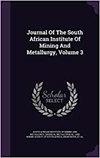某锰铁冶炼厂太阳反射面污染与位置的关系
IF 0.9
4区 材料科学
Q3 Materials Science
Journal of The South African Institute of Mining and Metallurgy
Pub Date : 2023-01-01
DOI:10.17159/2411-9717/2021/2023
引用次数: 0
摘要
在南非的一家锰铁冶炼厂进行了一项太阳能反射器污染研究,以评估工厂周围不同地点的污染率。对几个气象参数进行了监测,以深入了解导致污染增加的条件。从反射器和大气中收集的粉尘样品的矿物学特征表明,只有一定大小的部分对污染有重要影响,粉尘可归因于原材料和冶炼厂产品。靠近粉尘源是导致污染增加的主要原因。污染最严重的地点离原料堆很近;这被认为是一个异常值,被排除在汇总统计之外。第二驱动因素是相对于冶炼厂粉尘源的位置以及风向和风速。最佳位置的反射器组比“最差”(但仍然可行)位置的反射器组少了13.1%的污染,平均每日反射损失为0.0186。研究表明,虽然在这一特定地点有严重污染的时期,但与冶炼厂粉尘源有关的反射器位置的适当规划可以显著减轻污染率。关键词:定日镜污染,能源密集型工业(EII),太阳热过程热,聚光太阳能热(CST)本文章由计算机程序翻译,如有差异,请以英文原文为准。
Dependence of solar reflector soiling on location relative to a ferromanganese smelter
A solar reflector soiling study was carried out at a ferromanganese smelter in South Africa to assess the soiling rates at different locations around the plant. Several meteorological parameters were monitored to give insight into the conditions that lead to increased soiling. Mineralogical characterization of dust samples collected from the reflectors and the atmosphere revealed that only a certain size fraction is of importance with regard to soiling, and that the dust can be attributed to both raw materials and smelter products. Proximity to the dust source was the primary driver for increased soiling. The site that experienced the most soiling was very close to raw material heaps; this was deemed an outlier and was excluded from the summary statistics. The secondary driver for increased soiling was location relative to the smelter dust sources and the wind's direction and speed. The reflector set at the best location experienced 13.1% less soiling than the set at the 'worst' (but still feasible) location, represented by an averaged mean daily reflectance loss of 0.0186. The study revealed that while there are periods of intense soiling at this particular site, proper planning of reflector location in relation to the smelter dust sources can significantly mitigate the soiling rate. Keywords: Heliostat soiling, energy-intensive industry (EII), solar thermal process heat, concentrating solar thermal (CST).
求助全文
通过发布文献求助,成功后即可免费获取论文全文。
去求助
来源期刊
CiteScore
1.50
自引率
11.10%
发文量
61
审稿时长
4-8 weeks
期刊介绍:
The Journal serves as a medium for the publication of high quality scientific papers. This requires that the papers that are submitted for publication are properly and fairly refereed and edited. This process will maintain the high quality of the presentation of the paper and ensure that the technical content is in line with the accepted norms of scientific integrity.

 求助内容:
求助内容: 应助结果提醒方式:
应助结果提醒方式:


